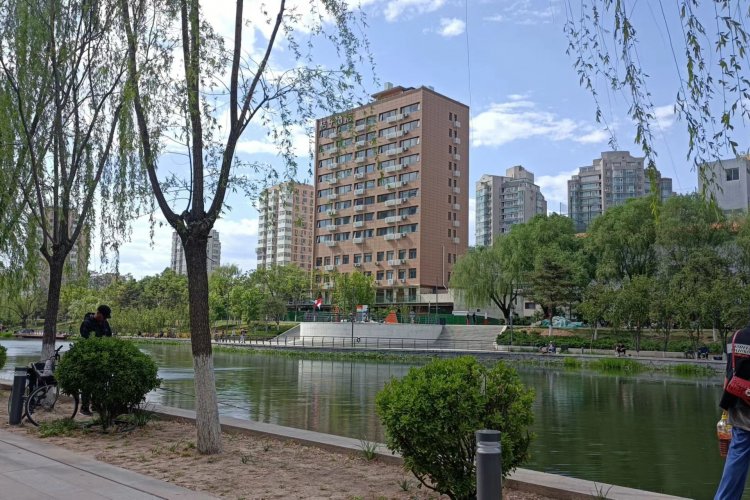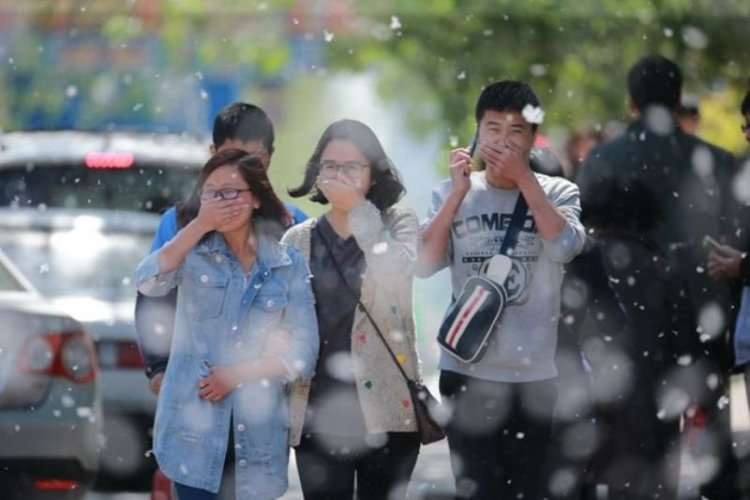Countdown! Our Biggest Blogs – #7
To celebrate the upcoming anniversary of the Beijinger magazine, we're taking a look back at the 11 most-read posts in the history of TheBeijinger.com. We're going to countdown from 11 to one, with a blog every day until the big event on October 18. Without further ado ... let's step back in time to August 17, 2010.
***
Note: The information contained below was accurate at the time that it was originally published.
"Beijing Air Pollution and Your Health" by Mary Dennis
With Beijing's air pollution casting a dark gray shroud over our city sky this summer, its hard not to wonder what all that particulate matter, ozone, and other contaminates are doing to your body. We asked Dr. William Chickering, one of four American Board-certified Emergency Physicians at BJU, a few questions about it. Dr. Chickering has lived in Beijing almost four years after time on the faculty of the Medical College of Virginia. He has practiced for prolonged periods in Guatemala, Cameroon, Dominican Republic, and Korea.
What are the short term effects of being exposed to high levels of air pollution?
If the level is high enough, most people will experience some combination of sinus congestion, runny nose, tearing/burning eyes, or dry cough because these are irritative phenomena, not allergic. You don’t have to be an allergic person to be affected by Beijing air. The good news is that the great majority of otherwise healthy people suffer no lasting harm, even with 4-5-6 years of exposure.
What are the long term effects?
Again, speaking of the otherwise healthy, only two groups seem to be at any risk for lasting harm. One is children, a tiny percentage of whom may develop asthma or suffer slightly retarded lung growth that would not have occurred in a cleaner environment. The other is people who appear healthy but who may have underlying coronary artery disease. A very small number of these might have a heart attack who otherwise might not have done so, or not so soon. Acute exposure to bad traffic fumes is thought to be a trigger. Does the number of respiratory cases increase when the pollution is very bad? Studies from the US and Europe have shown that emergency rooms see an increased number of respiratory cases when the air is bad. But this blip is nearly imperceptible on the scale of only one emergency room, especially one whose patient population is skewed toward youth and good health by being largely expats.
What sort of treatments are available?
The answer is more in the realm of things to do rather than take. (That said, I personally take 1-2 capsules daily of Omega 3 Fatty Acids derived from fish. But I’m middle-aged and, 20 years ago, was a smoker, thus could have underlying heart disease. If I knew I had heart disease, I would also be taking aspirin and a statin.)
Talking only of irreversible effects of air pollution, the main culprit is traffic-related. So go to Google Earth. Check out the location of your house, your health club, your jogging route, your commute to work, to see how close they are to major streets -- Ring Roads, or 4-lane streets. If greater than 150 m away, good. If not, and you or a family member is in one of the higher risk groups I mentioned, you might want to consider a change if it’s practical. (Would I change my kids’ school because of this? No. But would it affect my thinking if I were choosing a school? Yes, a little.)
Another thing you can do is get a HEPA air-purifier to run at night in your bedroom.
A third thing is exercise. Even if it’s outdoors, it’s net effect is positive. (But the effect is a lot more positive if you do it away from big roads, or in a health club with AC and closed windows.)
There's a rumor that "Living in Beijing is like smoking a pack a day." In actuality, how does breathing in pollution compare to smoking?
Two years ago I was asked the same question and answered, “No, it’s like living with someone who does”. Cute, but an overstatement. Let me rectify that here. Living in Beijing is like living with someone who sneaks smokes: you build up a small amount of exposure, and a big grudge.
What pollutants in Beijing's air are the most dangerous?
Vehicle emissions, especially diesel. Fortunately, Beijing keeps heavy trucks out of the city except between the hours of 11pm and 6am. This means that an air-purifier in your bedroom does some good.
Could you elaborate on what is meant by the API ratings of "hazardous," "very unhealthy" and "unhealthy?”
Basically these measure the irritant stuff in the air (dust, fine particles), not the irreversible-harm stuff (ultrafine particles from vehicles). If you are very prone to the irritant effects, then “unhealthy” is talking to you. Only slightly prone, you are bothered only when “very unhealthy” levels are reached. As to “hazardous”, most everyone will suffer some irritant effects.
Anything else that can be done?
People very prone to irritant effects may have an allergic component. If your sinuses clog or you start to wheeze every winter and every Asian dust storm spring, you may benefit from steroid sprays during your bad season(s).
Masks do help with the irritant stuff. These are the circular white cups called N-95. They may even help with the irreversible-harm stuff though probably not much.


